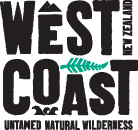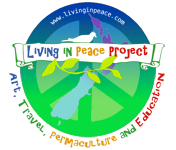The Department of Conservation has a few guidelines for riders on the track.
New Zealand Environmental Care Code
- Protect Plants and Animals
Treat New Zealand’s forests and birds with care and respect. They are unique and often rare. - Remove Rubbish
Litter is unattractive, harmful to wildlife and can increase vermin and disease. Plan your visits to reduce rubbish, and carry out what you carry in. - Bury Toilet Waste
In areas without toilet facilities, bury your toilet waste in a shallow hole well away from waterways, tracks, campsites and huts. - Keep Streams and Lakes Clean
When cleaning and washing, take the water and wash well away from the water source. Because soaps and detergents are harmful to water-life, drain used water into the soil to allow it to be filtered. If you suspect the water may be contaminated, either boil it for at least 3 minutes, or filter it, or chemically treat it. - Take Care with Fires
Portable fuel stoves are less harmful to the environment and are more efficient than fires.
If you do use a fire, keep it small, use only dead wood and make sure it is out by dousing it with water and checking the ashes before leaving. - Camp Carefully
When camping, leave no trace of your visit. Use toilets where provided. - Keep to the Track
By keeping to the track, where one exists, you lessen the chance of damaging fragile plants. - Consider Others
People visit the back country and rural areas for many reasons. Be considerate of other visitors who also have a right to enjoy the natural environment. - Respect Our Cultural Heritage
Many places in New Zealand have a spiritual and historical significance. Treat these places with consideration and respect. - Enjoy Your Visit
Enjoy your outdoor experience. Take a last look before leaving an area; will the next visitor know that you have been there?
Mountain Bikers Code
Respect Others
- Stay in control. So you can safely avoid others and keep yourself intact.
- Give way to walkers.
- Use a bell or greeting when approaching others. Most negative feedback from walkers on shared-use tracks concerns being surprised by bikers approaching without warning.
- Ride shared-use tracks in small groups. A ‘bike-train’ with a dozen riders displaces other users. Six, or less, is a better number.
Respect the Rules
- Only ride MTB and shared-use tracks; stay off closed tracks – including those that are seasonally closed to protect the surface or minimise conflict with other users. Land managers are generally pretty reasonable so talk with them about issues or ideas you may have.
- Be prepared – take food, water, tools, First Aid and warm clothes. Plan for the unexpected – a change in the weather, an accident or getting lost and late.
- Obtain permission from private landowners before you set out.
- Leave gates as you find them either open or closed to keep stock where they are intended to be.
Respect the Track
- Don’t skid, cut corners or make new lines. Skidding creates water channels and causes erosion. Use both brakes to slow down without skidding as you approach a corner. Cutting corners is cheating and damages fragile ecosystems.
- Avoid riding in the mud and rain. Both bikes and walkers damage soft, wet tracks.
- Clean your bike to prevent spreading weeds like gorse and didymo.
- Take rubbish home – like banana skins, old tubes and snack wrappers. Rubbish in the outdoors detracts from everyone’s experience.



